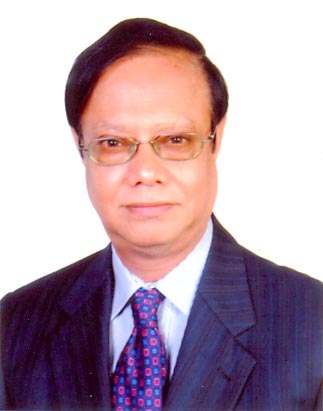
DHAKA, Dec 7, 2023 (BSS)-Noting that Bangladesh is facing multiple challenges on the macroeconomic front, country's eminent economist Dr Ahsan H Mansur today said that political will is really needed to undertake real and not superficial reforms.
"Bangladesh is facing multiple challenges on the macroeconomic front. Bringing down inflation, restoring exchange rate stability, preserving and then rebuilding foreign exchange reserve to much higher levels, and managing the fiscal situation despite revenue shortfalls will be extremely challenging," he said.
Dr Mansur, also the executive director of the Policy Research Institute of Bangladesh (PRI), opined this while delivering his public lecture on the "Macroeconomic Challenges and Policy Options in Bangladesh" on the first day of the ABCD Annual BIDS Conference-2023 held at a city hotel.
Former Bangladesh Bank Governor Dr Salehuddin Ahmed moderated the session.
Dr Mansur said short-term problems have also been compounded by the long-term structural problems associated with the structure of balance of payment (BOP), the vulnerable banking sector, and the poor state of revenue administration.
"While not much can be done before the forthcoming national elections, preparations must be taken to roll out major reforms to ensure market based interest rates, proper management of the exchange market to ensure unified market based exchange rate along with exchange rate stability and regularize or restructure the overdue payments to the international creditors," he added.
Dr Mansur said restructuring the banking and the broader financial sector and the improving the elasticity of the tax system will require comprehensive medium-term reform programs.
"International expertise and financial support from the multi-lateral organizations may help in preparing the right strategy and reducing the financing requirements through additional supports under new programs.
External technical and financial supports were never problems in initiating reforms in these areas in the past, and will not be in future. But what is really needed is the political will to undertake real and not superficial reforms," he said.
Notwithstanding the challenges, the noted economist said the situation can be stabilized and turned to a positive direction. "However, for that to happen, the post-election political leadership of the economic team should be credible and with strong political mandate,"
Dr Mansur opined that the current narrative of the government must change to prepare public for some of the short-term difficulties and pains that are likely to be associated with any strong reform strategy. "Business as usual is not an option,"
He said there is a need to overhaul the country's financial system in the post election period as the financial system is very shallow.
In his presentation, the economist showed that the sudden exchange rate depreciation of more than 32-45 percent in the exchange rate has increased the liabilities of the corporate sector by almost Taka one trillion for which the companies had to take additional provisions and losses of this magnitude eroding the corporate sector profitability.
Noting that Bangladesh has lower tax to GDP ratio compared to India and Pakistan, Dr Mansur said that with the current level of tax to GDP ratio of 8-10 percent, Bangladesh cannot become a high income country. "It has to be raised obviously,"
The famed economist said foreign portfolio investors like to invest in good companies in the stock market, they want to invest in domestic bond and securities market, and in banks and companies with good governance structure.
Former central bank governor Dr Salehuddin Ahmed said although Bangladesh has done well in various fronts, but still there are challenges in reforms.
He said the policymakers are often businessmen and it become difficult for them to carry out reforms.
Citing that countries like Vietnam attracts FDI worth $7 to $8 billion per year, the former Governor said Bangladesh is still hovering around attracting FDI worth $2 to $3 billion annually and it needs to be raised further.
Dr Salehuddin noted that Bangladesh would possibly be dealing with three phenomena -- challenges, uncertainty and apprehension -- during the post election period considering the global situation.
"Let's hope for the best, we shouldn't be very much complacent or frustrated. The people of Bangladesh have indomitable energy ...," he ended.